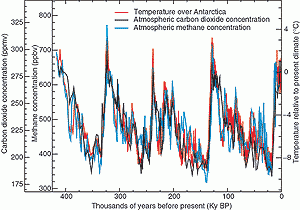Here’s a graph from the IPCC. I just happened upon it.

Notice that, historically, global temperatures were, cyclically, about 4 degrees warmer than now. Just look at the repeated cycle! It’s been getting warmer for the last 15,000 years plus.
AGW is just a farce. And the IPCC itself makes this point.